'Auntie Beer' has foreigners hooked
Updated: 2015-04-17 12:14
By Li Xueqing in Shanghai(China Daily USA)
|
|||||||||
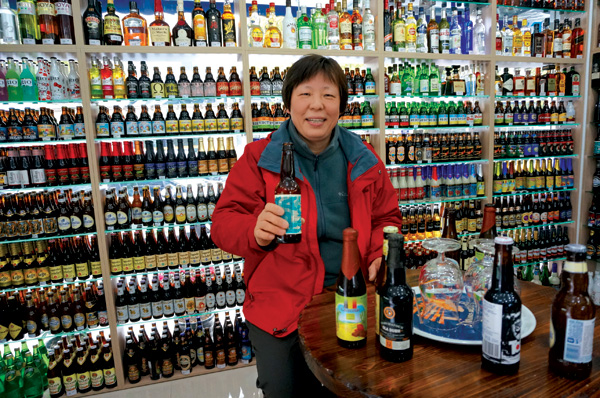 |
|
Zhang Yindi picked up the nickname "Auntie Beer" after she started replacing groceries with imported beers in 2011. [Photo by Li Xueqing / China Daily] |
A cult of beer drinking has sprung up around one small store that sells over 200 brands of foreign and domestic beer to expats and locals
Haifu convenience store in the west part of Shanghai has a collection of 200 foreign beers, mostly from Belgium, Germany and the United States.
On a fine day, the shop front is swamped with people enjoying a drink after work.
"Sometimes they come in groups of 30 or even 50. Some just stand or sit on the steps," said Zhang Yindi, the 52-year-old owner who goes by the nickname "Auntie Beer".
The store opens at 8am and closes at 12am. In summer it stays open around the clock, with Zhang's brother and son taking shifts.
Half of her customers are foreigners.
"They feel at home in my store drinking the beer from their countries," said Zhang, who can barely speak English.
Her Chinese customers are part of a growing demographic in the city that is chasing better-quality and more exotic beers from abroad.
"Imported beers are better and mellower than domestic ones. They are made at superior breweries and they use better water," said one customer surnamed Chen.
He and his colleague stopped by the shop on a recent Wednesday lunchtime. Their company is just a few blocks away and the store was recommended to them by a friend.
They pored over the selection of German beers and finally decided to share a bottle of Erdinger.
"Even Tsingtao tastes different from German beers because of the water they use," said the colleague, a man named Lin. He was referring to the popular Chinese beer made using German processing technology.
"Heineken that is bottled in China also suffers, and for the same reason," he added.
China is famous for its watery beers and potent distilled liquor. Baijiu, a transparent distilled spirit, is hugely popular in North China despite being 35 to 60 percent alcohol by volume.
Chinese consume 34.2 liters of beer per capita each year, according to a report by China National Radio in November.
When she founded Haifu a decade ago, Zhang focused on selling groceries. But her sales were hit by the rise of online stores like those operating on Alibaba's hugely popular Taobao site.
Zhang was thinking of a change when a regular customer gave her an idea. The man was an agent for the Belgian beer brand Duvel. He often stopped by when delivering beer to the bars on nearby Xinhua Road.
"From him, I learned that the local market for imported beers was big and sort of untapped," said Zhang. Her store is located on Fahuazhen Road.
She began clearing out some of the racks so she could replace the groceries with imported beers in 2011. For her, the transition was natural. She had 10 years' experience of running a Shanghai-style restaurant prior to opening her store and she has always appreciated good liquor and beer, she said.
"We only sold 20 to 30 beers at first. I thought that I would just drink them myself if they didn't sell well," she said.
Zhang has tried every beer in her store. She thinks Belgian beers are mellow and American beers taste refreshing. She prefers Hoegaarden or Tripel Karmeliet, both from Belgium, when she is at work and saves Brewdog's Tokyo beer for bedtime. It is 18.2 percent alcohol by volume and made by a Scottish brewery.
Business started to boom in 2014, when she set up six tables in front of her store at night. She also rearranged the layout of the store of less than 30 square meters, making enough room for two wooden tables in the center so customers could drink more comfortably.
Zhang's shop benefits from being so close to Shanghai Jiaotong University's Antai College of Economics and Management and high-end districts.
"About one year ago, a friend of mine came here to use the photocopier. Then he saw the beers," said Bastien Dumont from Belgium. He said he goes to Haifu once a week with friends to enjoy probably the best collection of international beers in the city.
Zhang offers plenty of cheaper options compared to regular bars but customers can also splash out if they want something special, said Andre Schlogl from Canada. He goes to Haifu once every few days to see if there are any beers he hasn't yet sampled.
As her sales ramp up, Zhang can get lower prices from beer agencies. This enabled her to cut the price of a 30-year-old Ola Dugh, from the Scottish brand Harviestoun, from 398 yuan ($64) to 298 yuan, she said.
She takes pride in being able to undercut local supermarkets on brands like Hoegaarden's wheat beer and Rogue's Hazelnut Brown Nectar.
As word of Haifu spreads, it has drawn the attention of the media as well as businessmen seeking partnerships. Zhang seemed happy, if a little overwhelmed, by all the interview requests she has been getting.
"I think I need a drink to refresh myself," she joked while reaching over for a bottle of Brewdog Punk IPA.
"Cheers," said Zhang, her face lighting up. She said she enjoys drinking with her customers and finds it a good way to make friends.
As she was speaking, a young man with a backpack came over and tried to sell her some software that he claimed could help her sell beer online. She politely declined.
"I'm not ready for that yet," she said, adding that she will first focus on adding Belgian ice-cream to her selection of goods.
lixueqing@chinadaily.com.cn
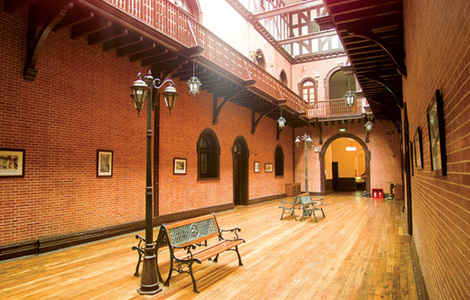
 Historic hotels offer more than a view
Historic hotels offer more than a view
 Top 10 foreign holders of US Treasuries
Top 10 foreign holders of US Treasuries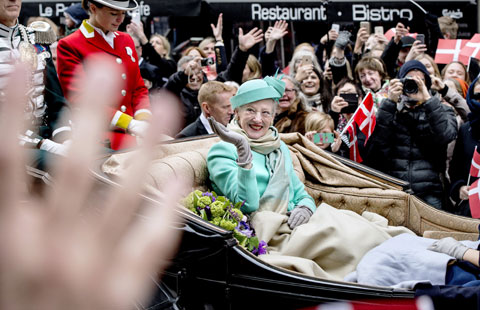
 Denmark's Queen Margrethe 75th birthday celebrated
Denmark's Queen Margrethe 75th birthday celebrated
 Lost in sandstorms
Lost in sandstorms
 New roles for technology: Rise of robots
New roles for technology: Rise of robots
 Strange but true: Getting ahead of the rest
Strange but true: Getting ahead of the rest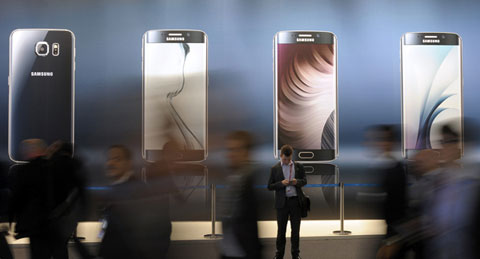
 Top 10 industries with most job-hoppers
Top 10 industries with most job-hoppers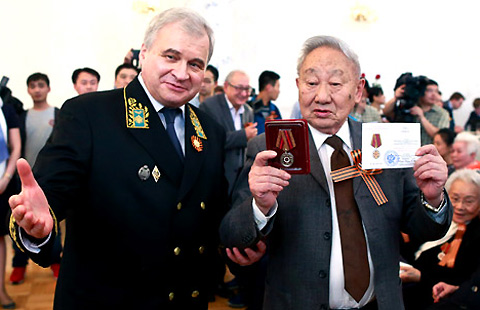
 Russia honors Chinese veterans from WWII
Russia honors Chinese veterans from WWII
Most Viewed
Editor's Picks

|

|

|

|

|

|
Today's Top News
China and the 2016 US election
World Bank, IMF: will work with AIIB
Ex-PM says US, China can be allies
Hainan Air links San Jose, Beijing
Carrying on a Chinese food legacy
America, Europe told to work with BRICS
Beijing film festival draws top moviemakers, Oscar winners
Chinese teachers mark progress
US Weekly

|

|







